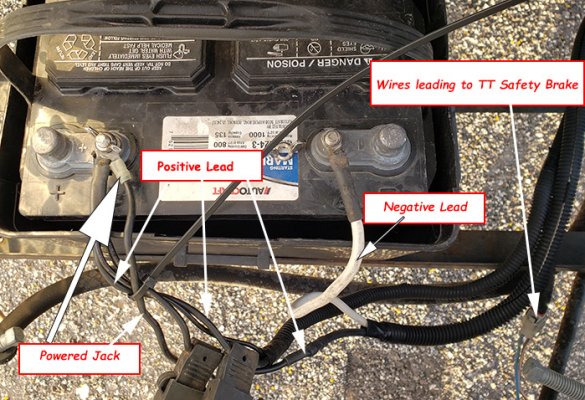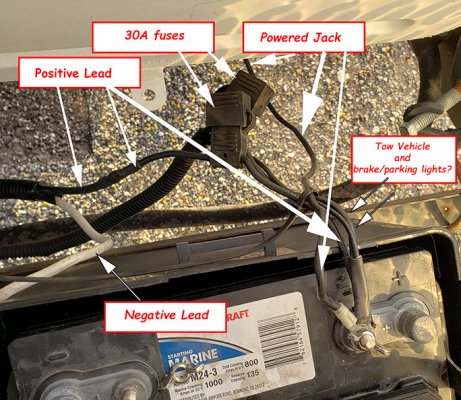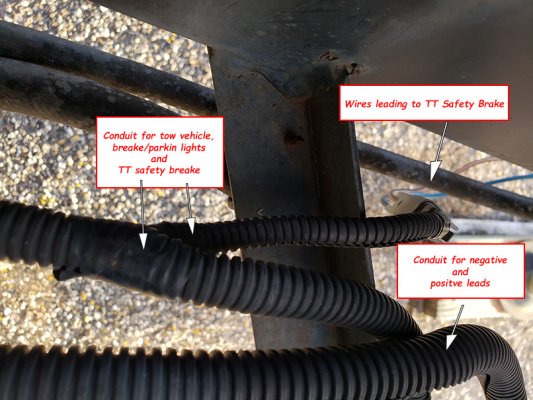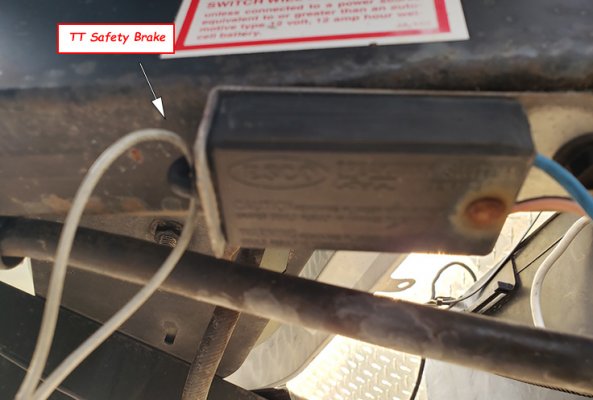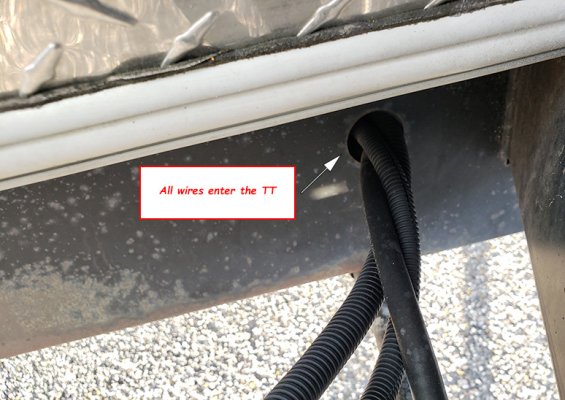I have a 2010 Jayco Feather Lite that I haven't used in almost two years. Got it out of storage this weekend, and the house battery was still hooked up and, of course, dead. Brought the TT home and removed and recharged battery with a standalone charger. Then reinstalled battery backwards.
At the time, the TT was not hooked up to shore power or a generator, but was hooked to my Expedition (which was not running). While the battery was connected incorrectly, I ran my electric tongue jack (which ran, unbeknownst to me at the time, in reverse). Within a few minutes, I realized my mistake and corrected the connection, and called it a day.
The next morning I connected to shore power thru a GFI outlet in my yard, and the GFI kept tripping. Turned off all breakers except main and converter, and GFI did not trip. Checked all DC fuses and reverse polarity fuse on converter (iota dsl 45), and all were good. Per idiot light on TT, battery was fully charged. All DC items in TT appeared to work fine while connected to shore power. Left unit connected to shore power for 24+ hours, and disconnected. Then no DC power in TT.
I am hoping that this is just the matter of a dead battery (from 2 years of neglect), and not a problem caused my reversed connection. From what I have read, it seems that perhaps the reverse connection would not have cause damage since no AC power source was connected to battery while in reverse connection.
Question: Is that a reasonable hope?
At the time, the TT was not hooked up to shore power or a generator, but was hooked to my Expedition (which was not running). While the battery was connected incorrectly, I ran my electric tongue jack (which ran, unbeknownst to me at the time, in reverse). Within a few minutes, I realized my mistake and corrected the connection, and called it a day.
The next morning I connected to shore power thru a GFI outlet in my yard, and the GFI kept tripping. Turned off all breakers except main and converter, and GFI did not trip. Checked all DC fuses and reverse polarity fuse on converter (iota dsl 45), and all were good. Per idiot light on TT, battery was fully charged. All DC items in TT appeared to work fine while connected to shore power. Left unit connected to shore power for 24+ hours, and disconnected. Then no DC power in TT.
I am hoping that this is just the matter of a dead battery (from 2 years of neglect), and not a problem caused my reversed connection. From what I have read, it seems that perhaps the reverse connection would not have cause damage since no AC power source was connected to battery while in reverse connection.
Question: Is that a reasonable hope?

